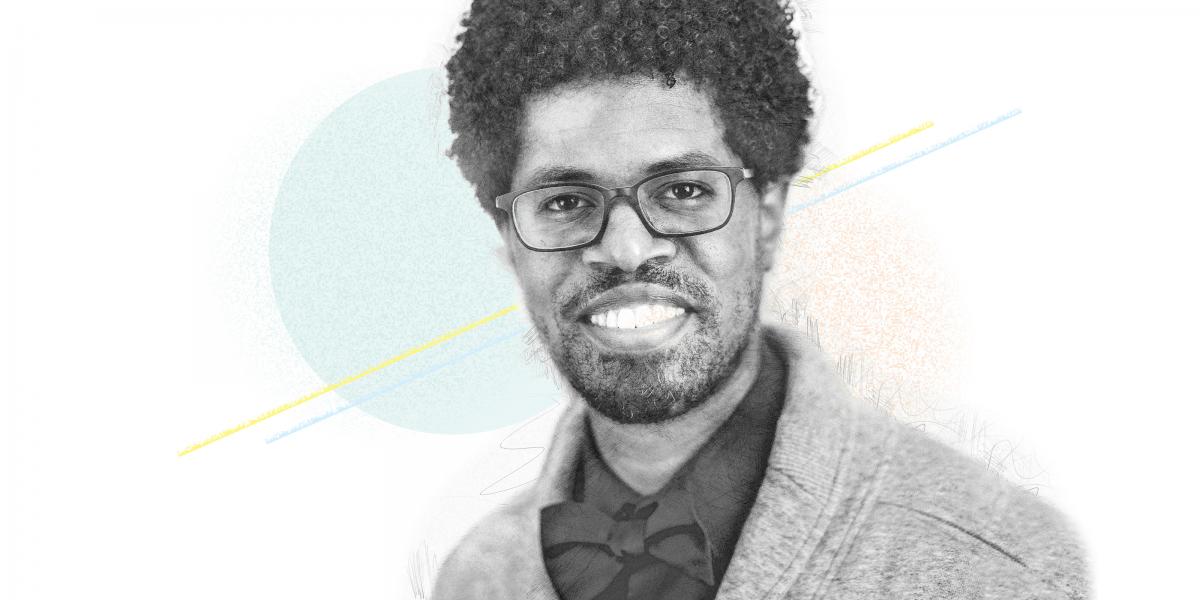Systemic Equity
A new office aims to break down structural racism and inequities at the School and beyond.
IDARE is more than a name. It’s a statement.
The Office for Inclusion, Diversity, Anti-Racism, and Equity is working to dismantle structural oppression and racist policies and practices within the School, the community, and the field of public health. Joel Bolling, MA, the inaugural assistant dean of Diversity, Equity, and Inclusion, leads the effort. In this Q&A with vice dean for Faculty and guest editor Keshia M. Pollack Porter, PhD ’06, MPH, Bolling discusses his vision for the office and a more equitable future for the School.
Keshia Pollack Porter: Your office was recently renamed IDARE to incorporate inclusion, diversity, anti-racism, and equity. Why was it important to reframe the office around IDARE?
Joel Bolling: I feel like we are in a unique time in our recent history in terms of addressing oppression at a systems level, in a way that we haven't seen basically since coming out of the racial civil rights movements in the ’50s, ’60s, and into the ’70s. People are starting to recognize that there are issues embedded in the system that need to be addressed.
For the context of the work that we do as an institution, even though we do work globally, we are rooted in the United States. When we talk about how our institution was founded, how our country was founded, and so many structures within our country, there is a racial component built in. We have to be able to explore what racism is—and then explicitly say that we’re not just going to understand it on an intellectual level. Anti-racism requires action. If you’re truly dedicated to making an inclusive, equitable, more socially just world and institution, you must explicitly act to address the systems that are inequitable.
KPP: How do you respond to those who ask, Is IDARE is too broad, or, Are we trying to address everything?
JB: Yes, we are trying to do everything. Is it too broad? In some ways, absolutely. But you cannot uplift people who have been oppressed around race without uplifting people who've been oppressed around gender or sexual orientation or ability or any other identity. If you perpetuate the notion that one identity is more important than another, you basically break up historically marginalized groups so that their powers together never coalesce. We want to move away from that.
KPP: What will success look like for this new framework?
JB: Part of the success will be that as we are attracting more diverse students, faculty, and staff, they’re excited about the culture they’re coming to, that they feel like they’re coming into a place that is going to value them and develop them.
Another is that we have a better relationship with Baltimore, especially East Baltimore, where the community sees that we’re responsive to their needs and value them deeply as partners and experts in their own lives and experiences. And that we find space to own our history. The community reminds us, and rightly so, that we have not always had a positive impact, and that in some cases we’ve had an outright adverse impact, on the community we exist in. I’d like to see us be able to own that and address those issues and move toward building meaningful relationships with our community members.
And for me, education is the core. We have a responsibility to produce and develop public health practitioners who will be able to serve diverse communities. I want us to make sure they are not only getting the core of what public health has to teach, but that they are building empathy, emotional intelligence, and cultural competence to work with groups of people who are not only like them but also may be very different from them. And how to serve them and not come in to try to help or fix them. I would like our graduates to go out and feel like, as exhausting as this work may be at times, I get a lot more in serving these communities than I will ever be able to give.
Anti-racism requires action. If you’re truly dedicated to making an inclusive, equitable, more socially just world and institution, you must explicitly act to address the systems that are inequitable.
KPP: I really appreciate that—that serving is walking alongside, partnering authentically. Why do you think IDARE is the way to approach this work?
JB: In as terrible of a public health crisis we’re in right now with COVID-19, it is a really good time to rethink the importance of community and collectiveness.
We are not successful as a school of public health or a field of public health if we are centering our work on those who have the most. This is an opportunity with inclusion, diversity, anti-racism, and equity to recenter our work.
Naturally public health leans in that direction. We should be centering our work on those who are the most oppressed, who have the most history of trauma and racism and bias and bigotry. IDARE gives us the language, the competencies. It dares us to have a level of empathy to focus on people who have experienced so much hardship. IDARE gives us that capacity to lift up our entire community instead of pieces of our community.
KPP: At the time we’re in right now—with more than 200,000 people dead from coronavirus, many of whom are Black and brown people, people who are under-resourced, who have been left out and pushed aside—I appreciate your reminder that: we should center on work on and with those communities.
JB: I challenge all of us to do this collective work. We need to come together and engage in this, all of us, and not just rely on one person or a couple of individuals here and there who may be in some cases closer to the issues. This is a responsibility we all need to take on.
